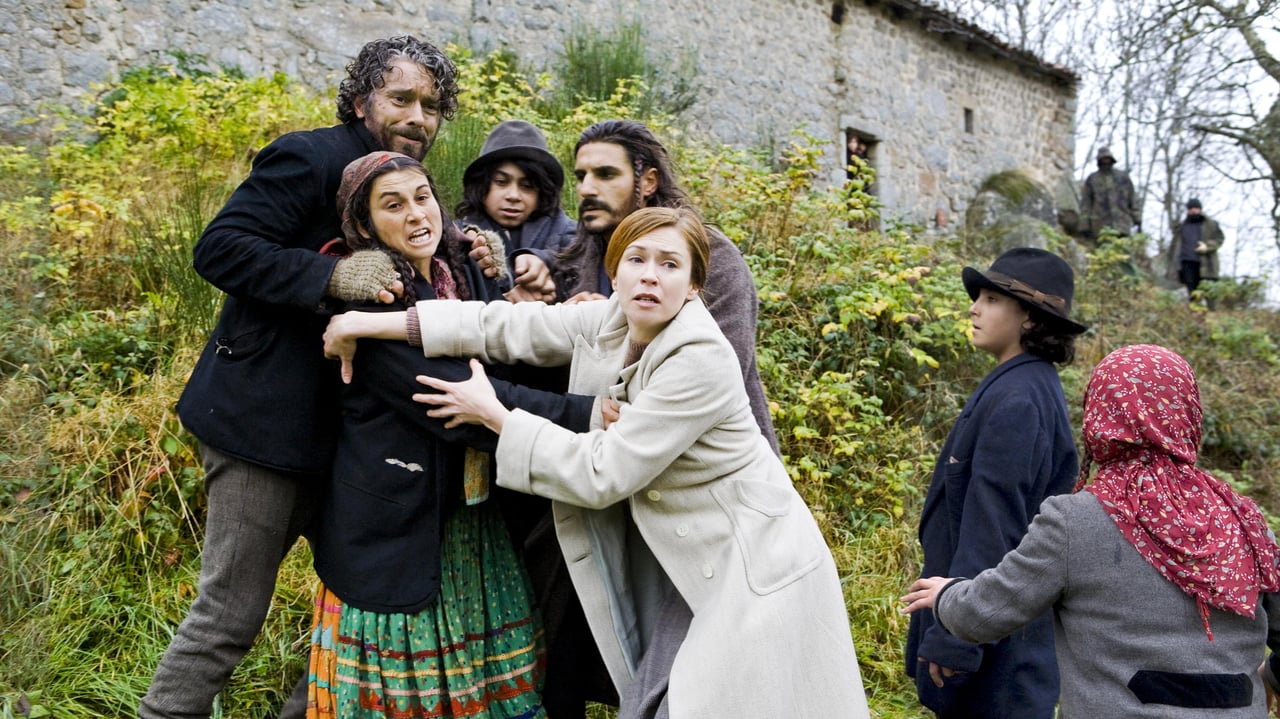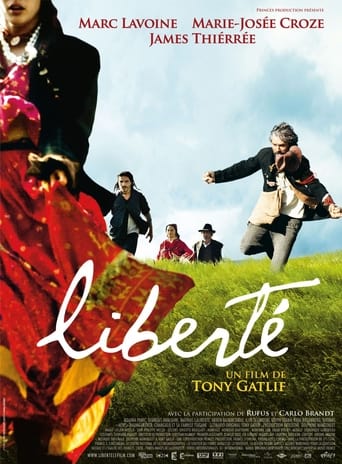

Too much of everything
... View MoreSurprisingly incoherent and boring
... View MoreBoring, long, and too preachy.
... View MoreThere's a more than satisfactory amount of boom-boom in the movie's trim running time.
... View MoreThe film is a picture of history, fluidly told through effective casting and characterization, brilliant cinematography, perfect music and creative sound design. A lot films that include Nazi's have a depressing and overall heavy flavor. Though this film delves head first into the conflicts that fascism produces, the film left me with an overall warm heart. It was not depressing after the end. The Heart in this film overrides the nazi issues. This has much to do with the well pitched music throughout, and the translations given of some lyrics, and the screen-time on particular strong characters. More in focus is the union that the characters have with nature, their conviction in life and their innocence. The beauty of nature is in focus, and the insanity that humans perform in our would becomes the distant backdrop.Well done film makers for this breath of fresh air. Strong positive message about what a life can be.
... View MoreVery few films have dealt with the persecution and annihilation of the gypsies or gitanos during World War Two by Hitler and his minions. For that reason alone, this film is important. If you are looking for other films, you might check out "The Man Who Cried" with Johnny Depp.This film was a nice surprise. I expected it to be depressing, but it was not. What Gatlif managed to portray through some very nice cinematography and story development is the gypsy love of nature and the outdoors. It was beautifully done.Another theme that comes across well in this film is the gypsy love of music. They seem to have an unusual flair for music, and they use it to enrich their own lives, but also to provide an income and support themselves.As someone with a history degree, I appreciated the fact that Gatlif attempted to shed some light on a subject that few have touched. I also appreciated the cultural insights on gypsies and their lifestyle. Anyone looking for something a little different should enjoy this film.
... View MoreTo me, this is one of those rare movies which open a door to another world - in this case, the bleak world of France during the Second World War. The movie is in French, but as an English speaking person, there was ample time for me to digest the subtitles and the action taking place on screen. I found the characters to be well rounded and real, with only a few minor hiccups. The acting is superb and very believable. Surprisingly, for a movie with such a supposedly sad theme, there were a few times when I found myself having a good old belly laugh, even though this movie is not a comedy. The humor comes from the ridiculous, but so real situations and/or some of the characters idiosyncrasies. Probably a bit like watching someone consciously avoid slipping on a banana peel, only to be run over by a Mac truck. In my humble opinion, this is a very well made and highly entertaining film.
... View MoreFirst of all, sorry for all the details in the following review, but I guess those of you interested in this film may find them useful.Having followed Gatlif's progression as a filmmaker from the early 90s onwards - I still have his 80s works to catch -, I've been wondering for quite some time when he would tackle the Porraimos, the 'Devouring' in Nazi-occupied Europe which left 250-500.000 Sinti and Roma dead. It's a sadly neglected aspect of the Holocaust, and neglected for a reason: the stereotypes and social conditions which make Gypsies easy targets for fanaticism and slander are still very much in check, as demonstrated by the recent forceful deportations of Roma from France, Gatlif's home country. Unfortunately, Gatlif's usual strengths translate as weaknesses when it comes to the story structure such an issue calls for. His films are great when they center around music and place the characters around it (Gadjo Dilo, Latcho Drom, Swing). They are weak when the focus is on the characters proper, for Gatlif invariably attempts to create rather a tableau of images than empathy with the protagonist's dilemmas (Exiles), or, even worse, when he appeals to romanticist views of Gypsies for the sake of accessibility (Transylvania). In the case of 'Freedom', all these weaknesses come into full swing: there's next to zero character development, which results in very weak story structure. There's little music to render the admittedly great cinematography alive. The scenes of Gypsies in (French) internment camps are long, dreary and lifeless - the controversial fact that French police collaborated with the Nazi Regime, which later deported the Gypsies to death camps, is somewhat alluded to (in the character of the limping agent) but incomprehensibly so if you don't know already. This ambiguity may be explained by the fact that Sinti and Roma rarely discuss the Holocaust due to taboos in regard to the dead. It's one of the most important aspects of Roma culture and again alluded to in the scene where the Kumpania ('extended family') refuses to use a house for fear of the spirits of the dead (muló). If you are wondering why there are so little films and books dealing with the Holocaust in spite of its impact on the Roma - that would be the most important reason. This also explains the blatant anachronism to use Romanian Roma (who speak a Transylvanian dialect of Romanes) instead of French Manouche (who speak Sinti Romanes, a different language): the (Western European) Sinti were wiped out by the Nazis to an extent of about 80%, their culture was almost completely annihilated, therefore they understandably reluctant to participate in reenactments of this catastrophe. The (Eastern European) Roma were also persecuted to an appalling extent, but their social structure survived, which may allow them to enact the persecution with more confidence.Still, Gatlif himself has illustrated a much better way to deal with this silence in 'Latcho Drom', in a shot of an old woman singing a lament, with the camera just brushing over her arm - and her tattooed Auschwitz internment number. Given that the (silent) way Gipsies deal with the Holocaust is fundamentally different from that of most Jewish groups, this kind of symbolism would probably have been more appropriate and artistically successful. As it is, 'Korkoro' is still quite important being the first film by a Gypsy film maker to deal with the subject. But judged by itself, it's a failure, and not a very interesting one to watch failing.
... View More